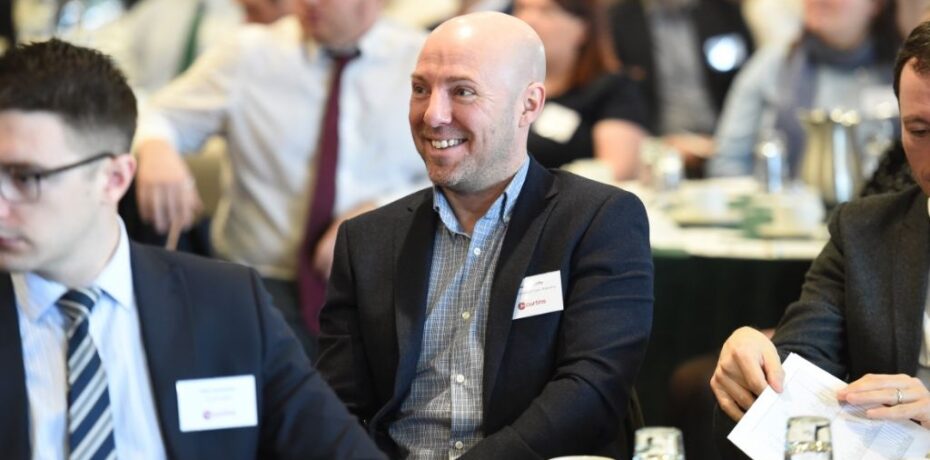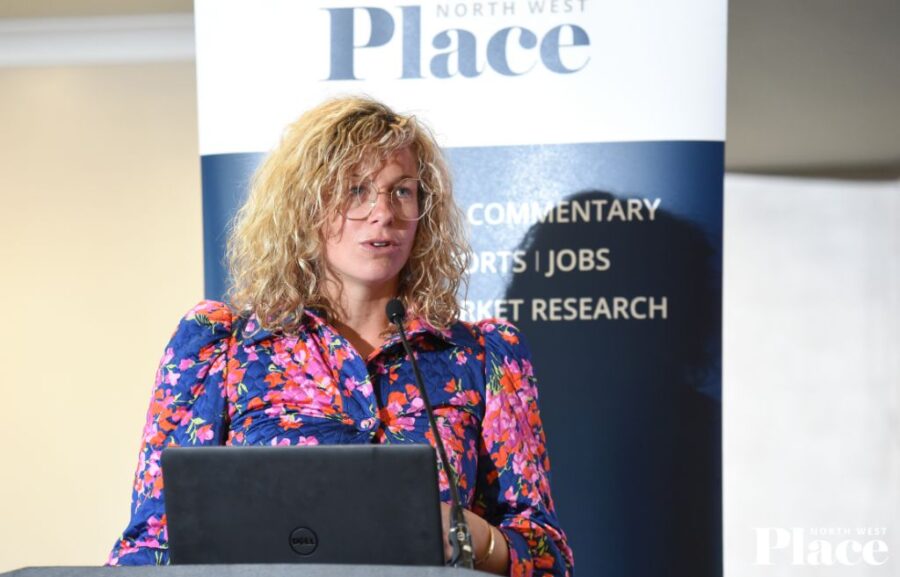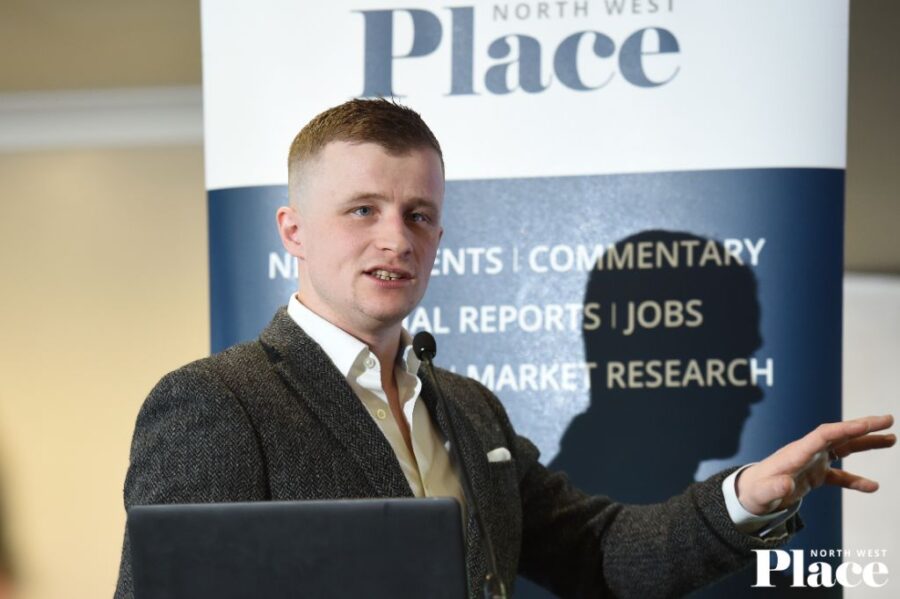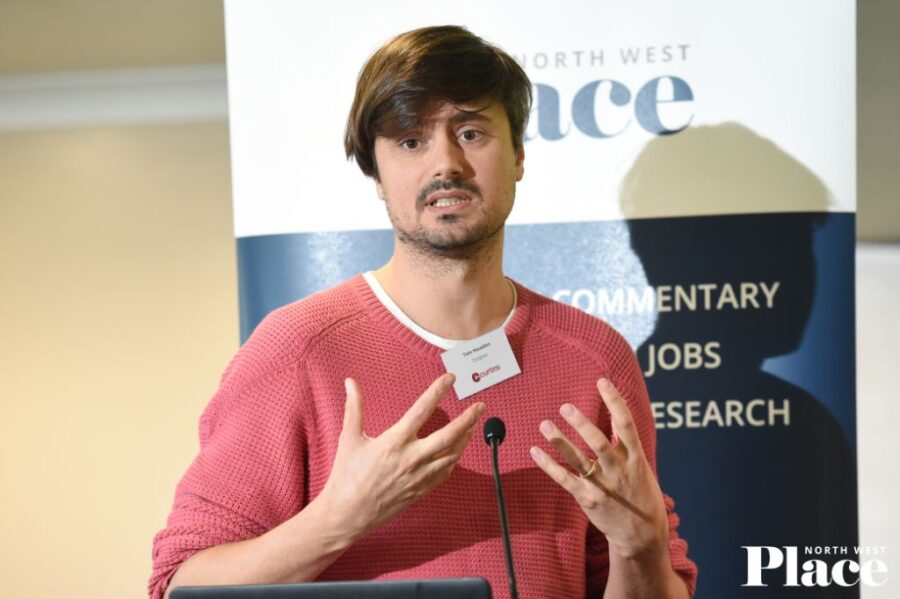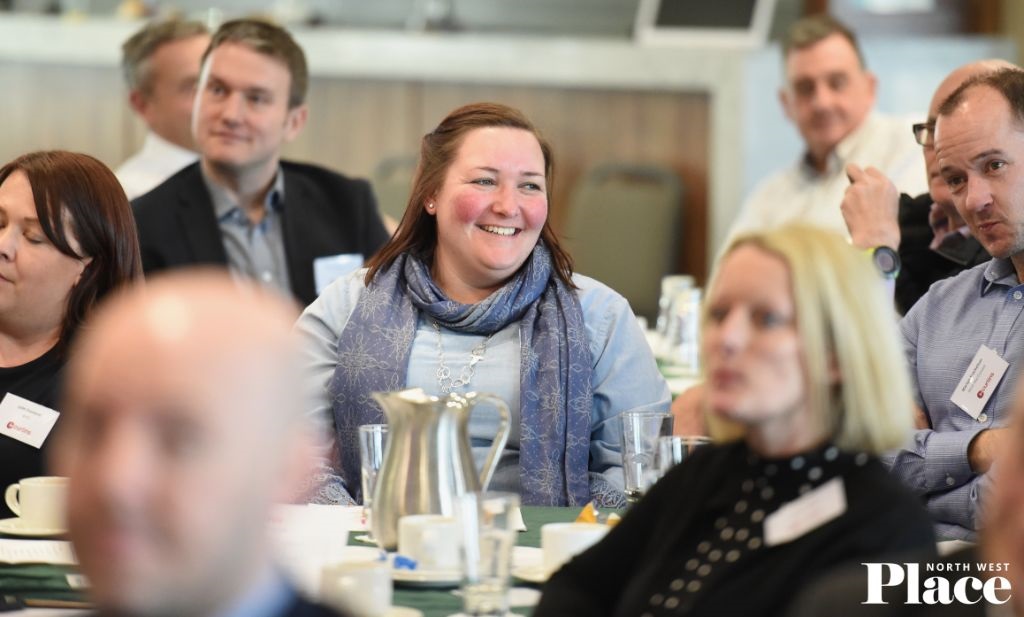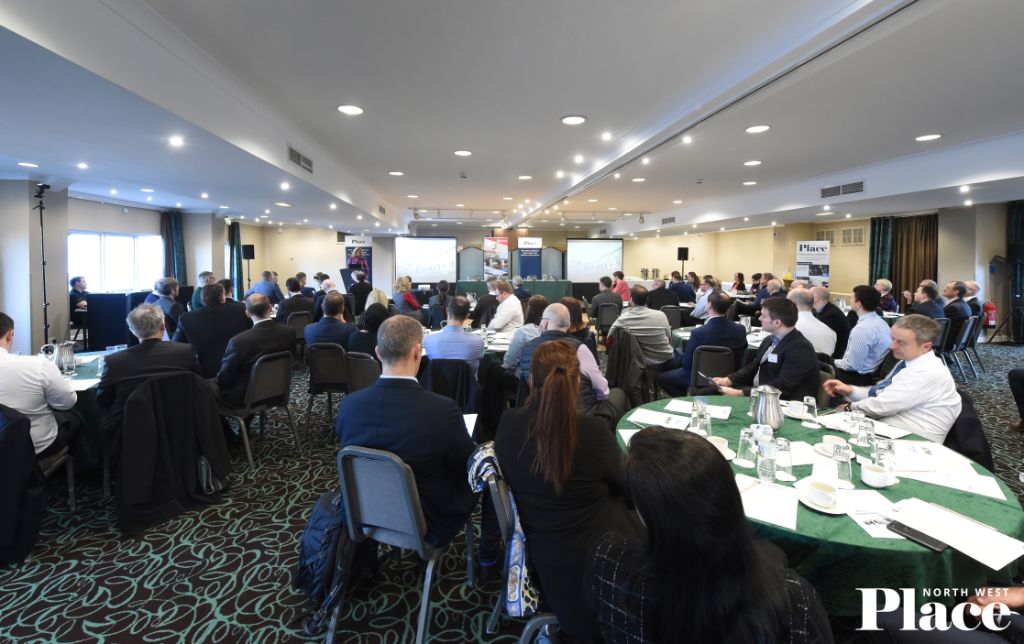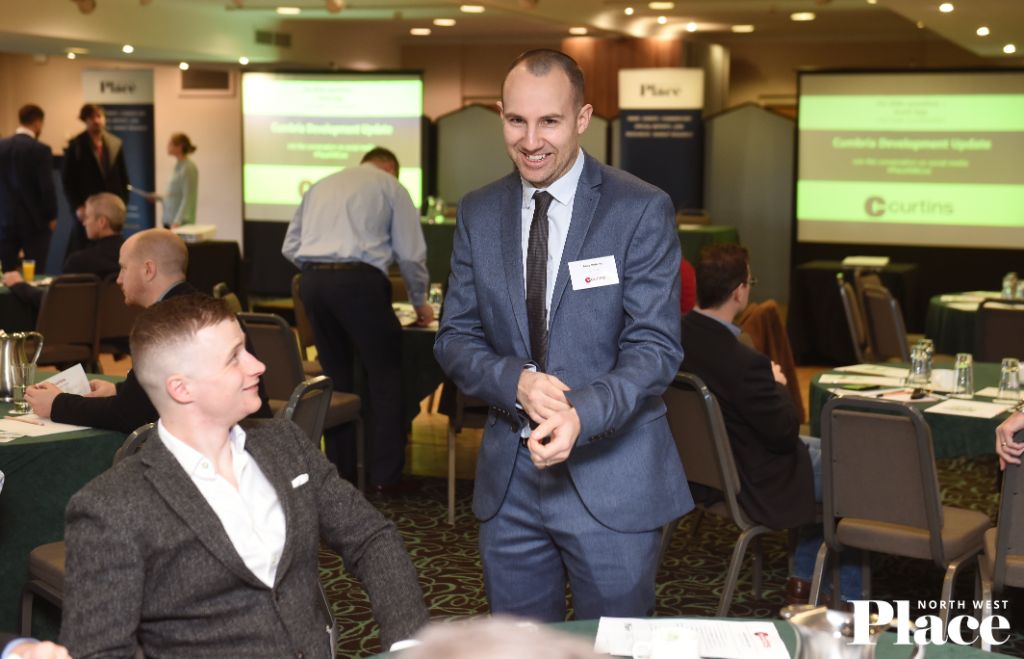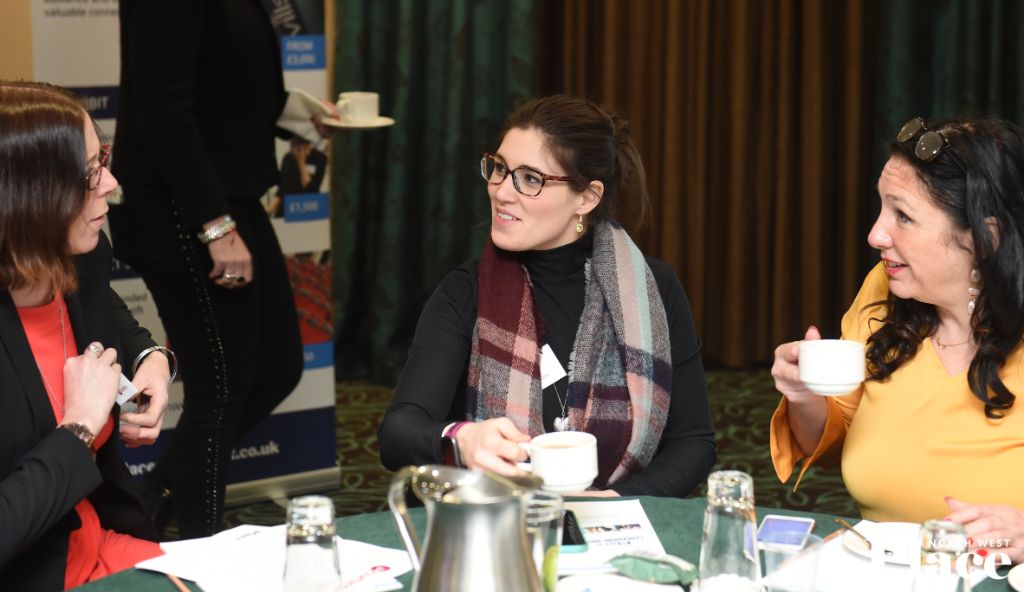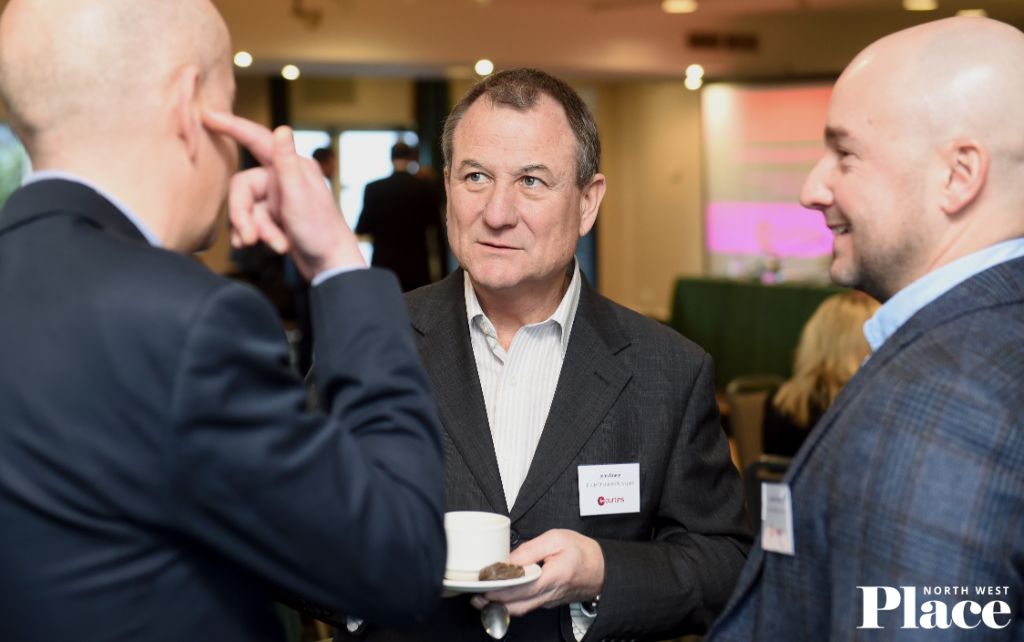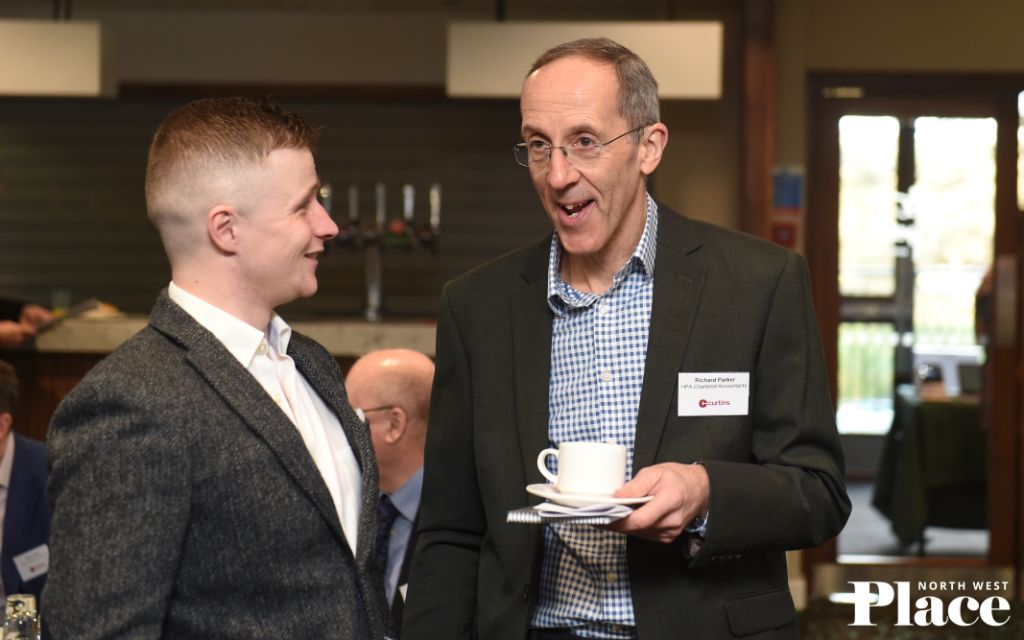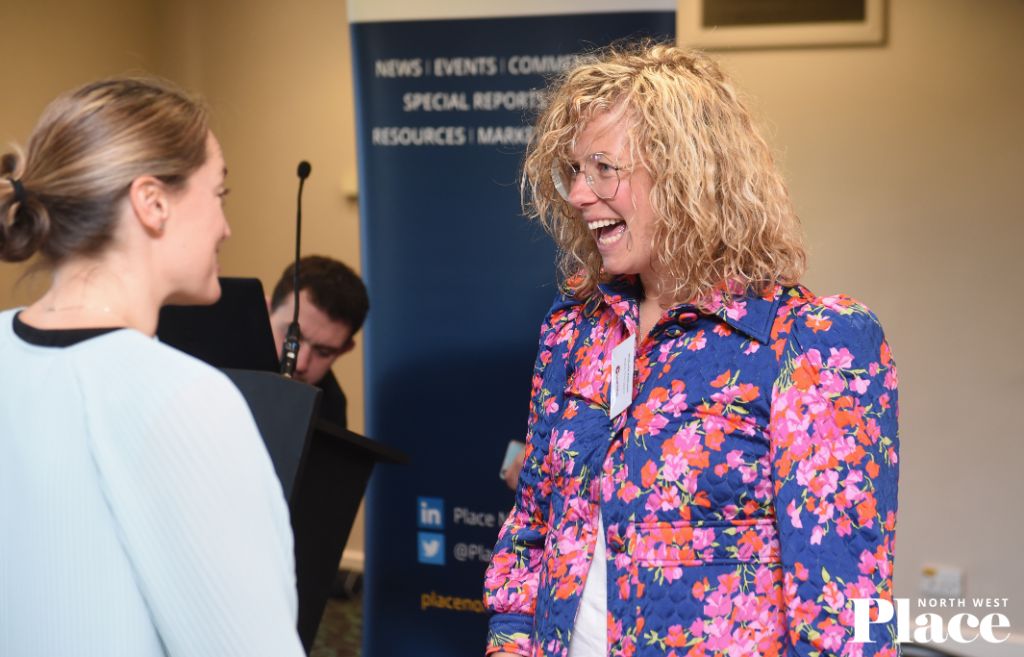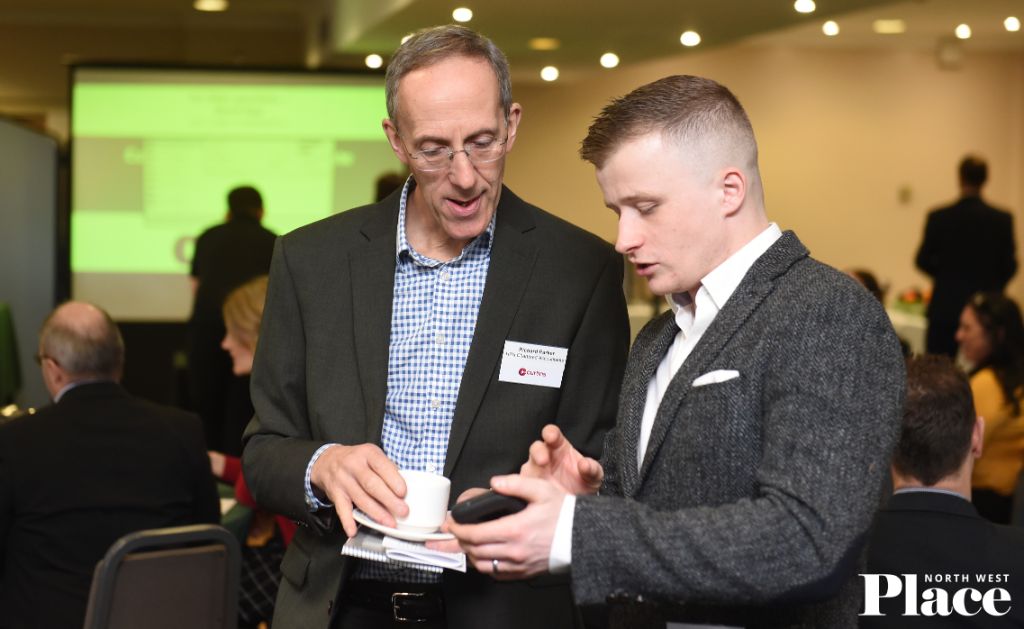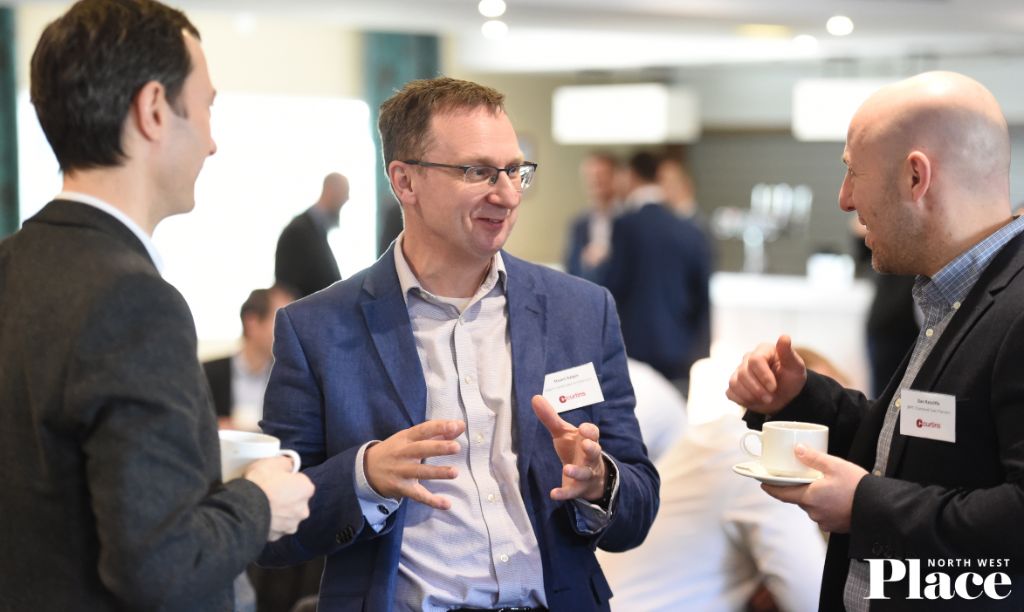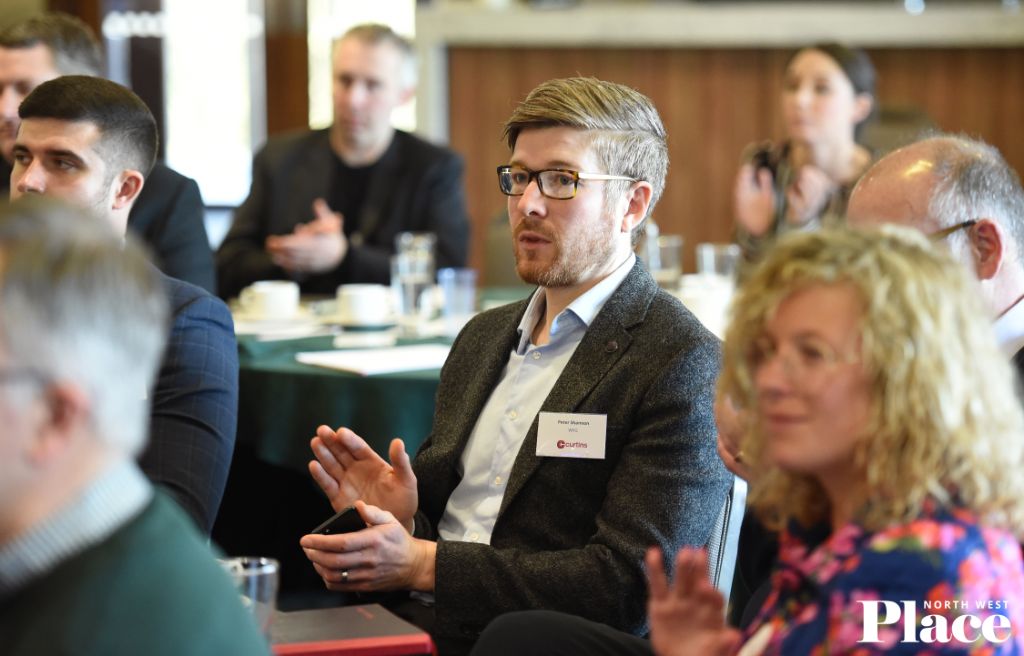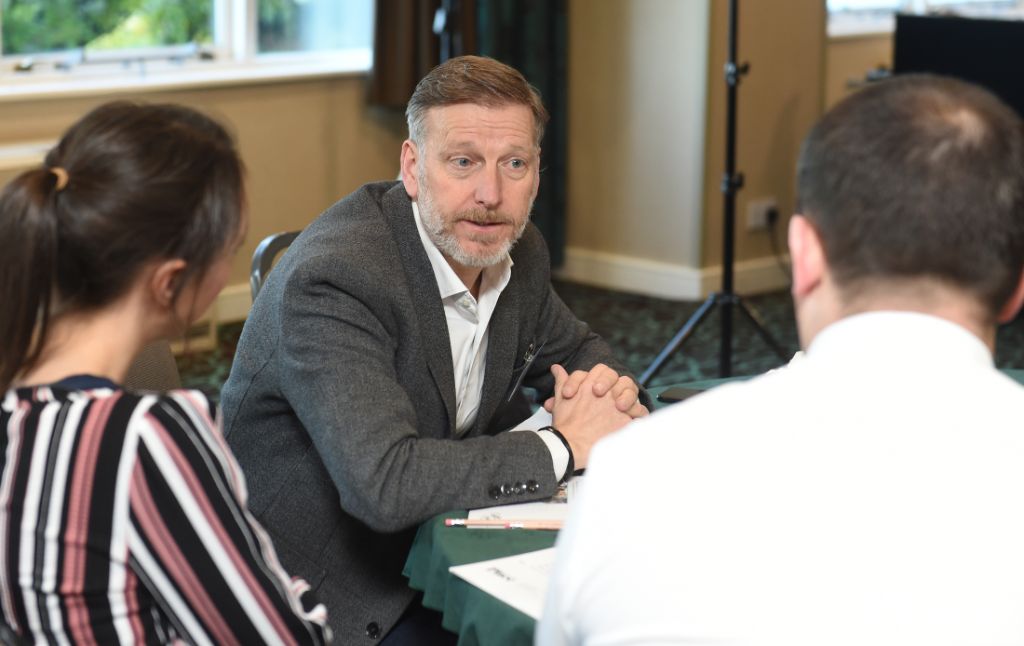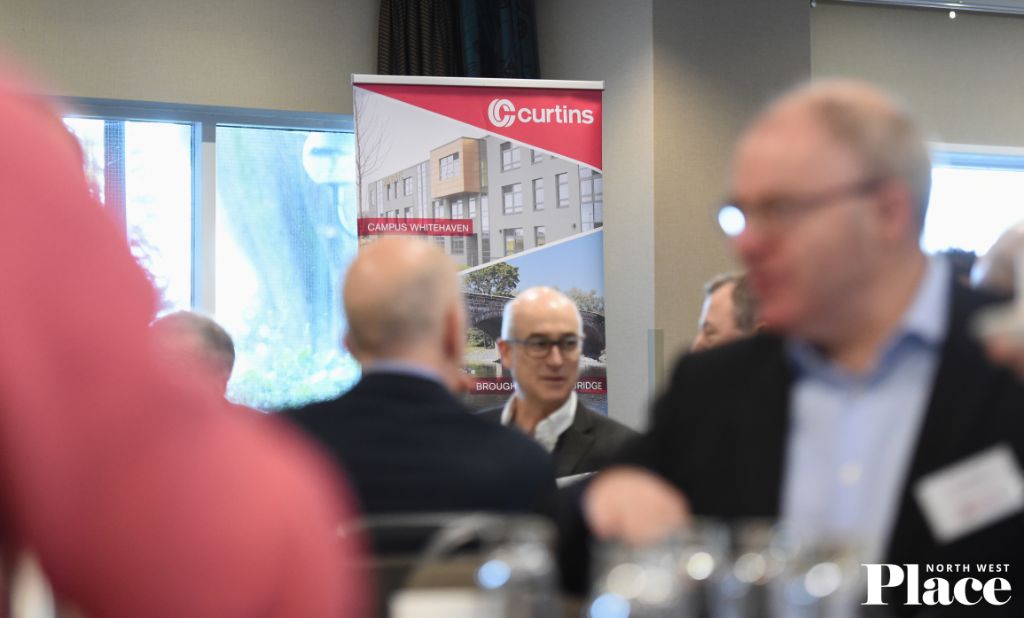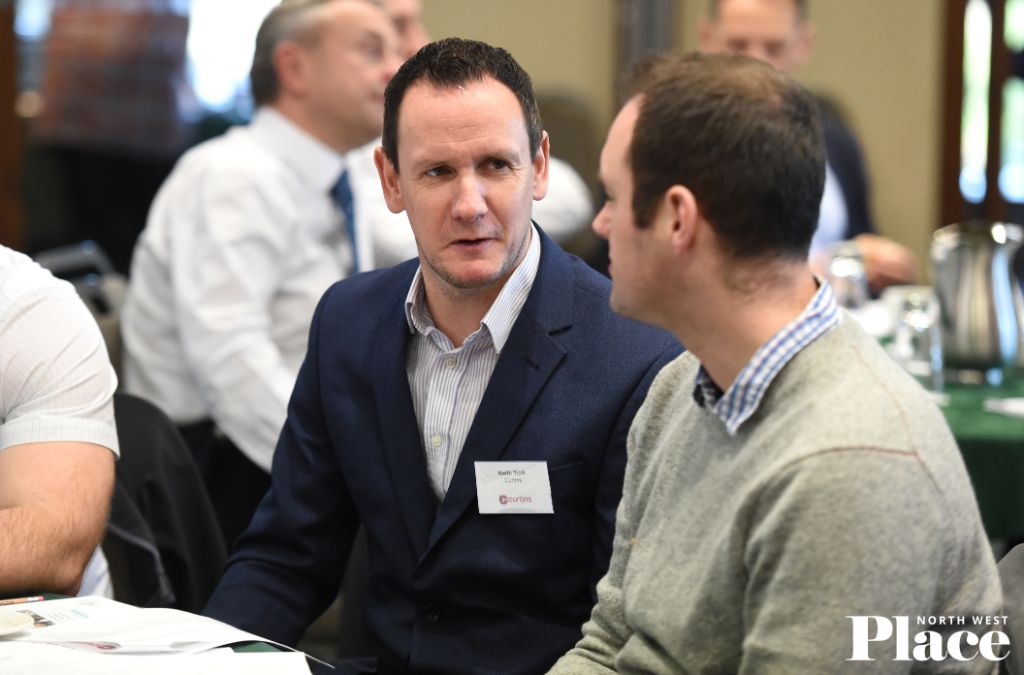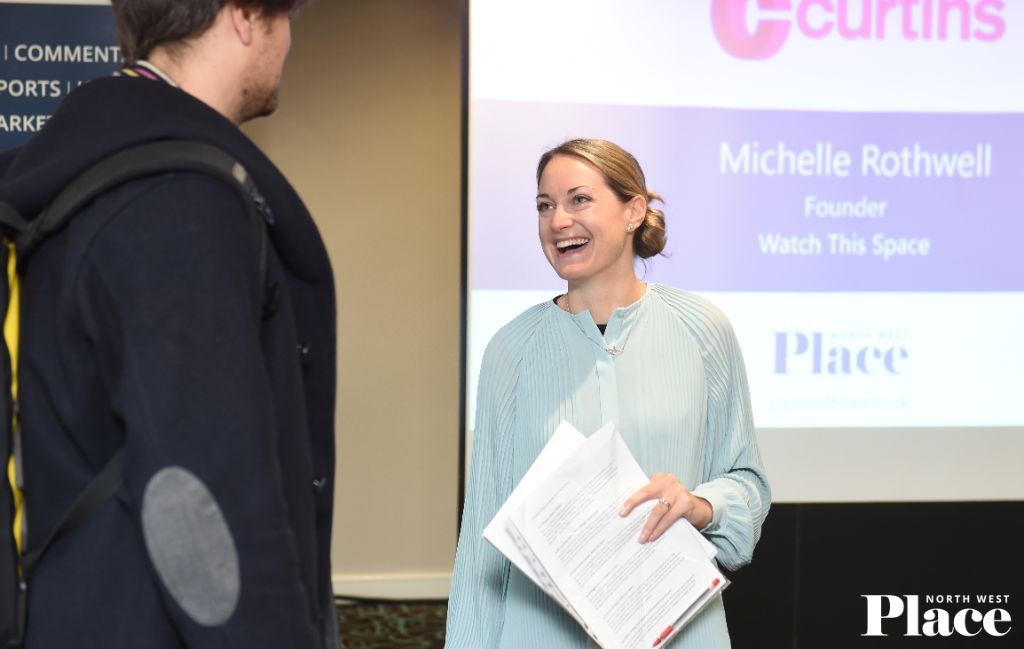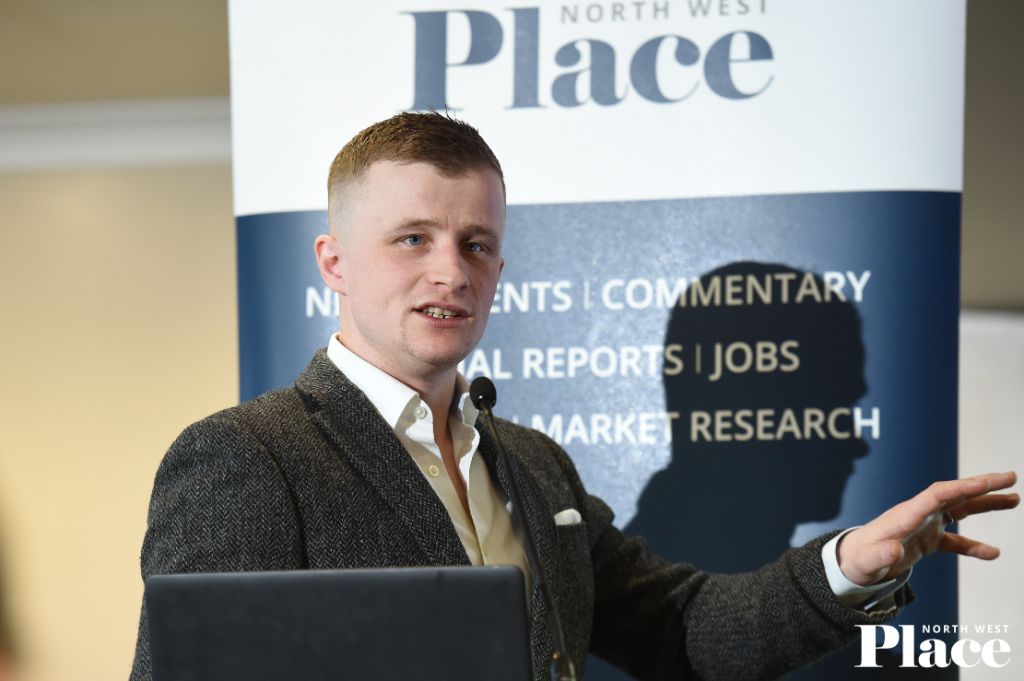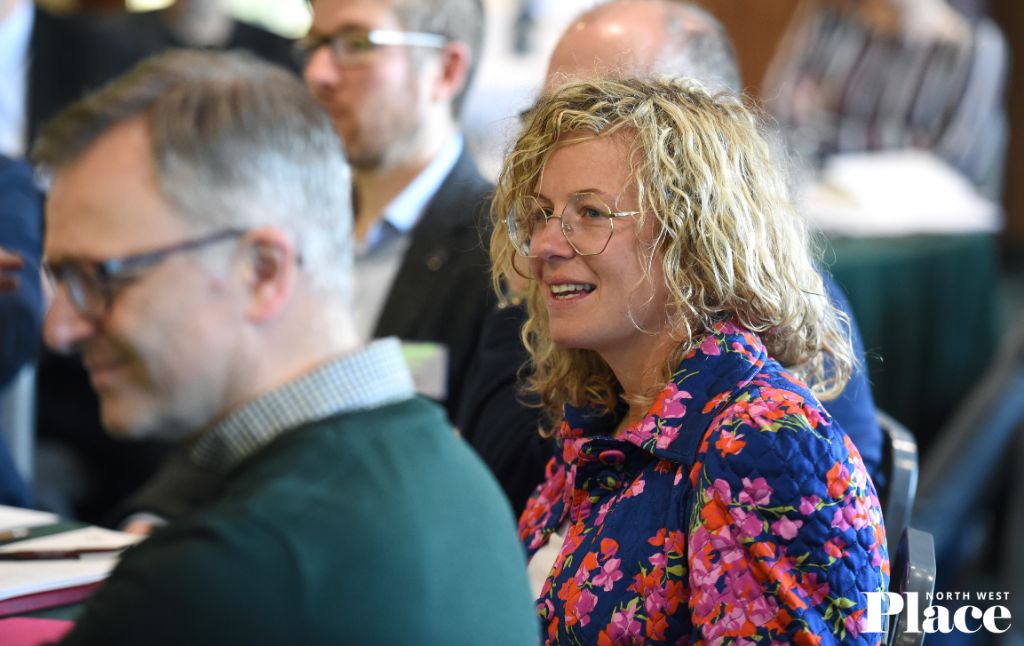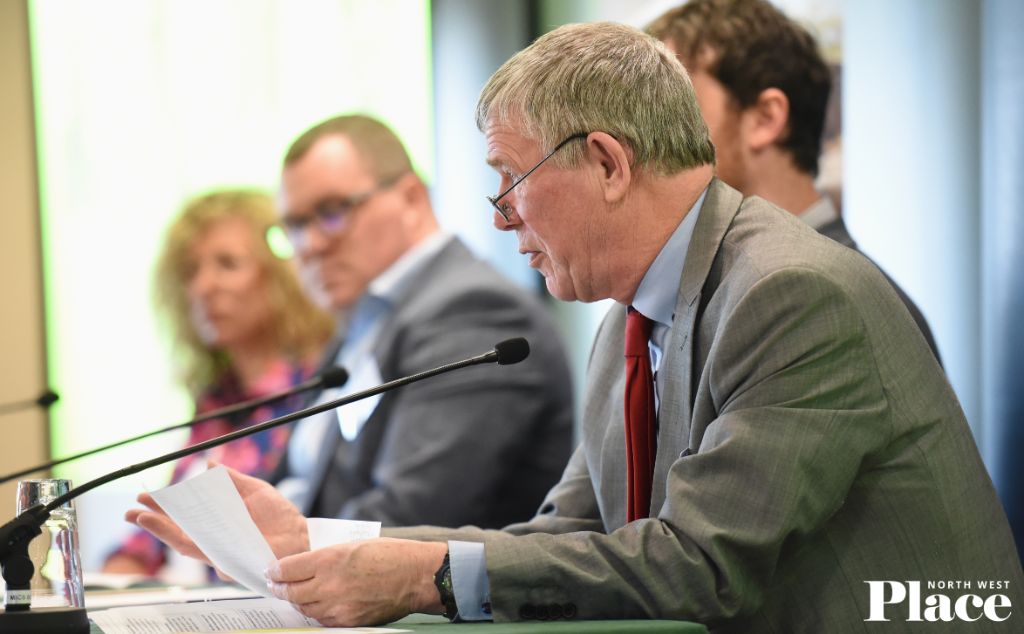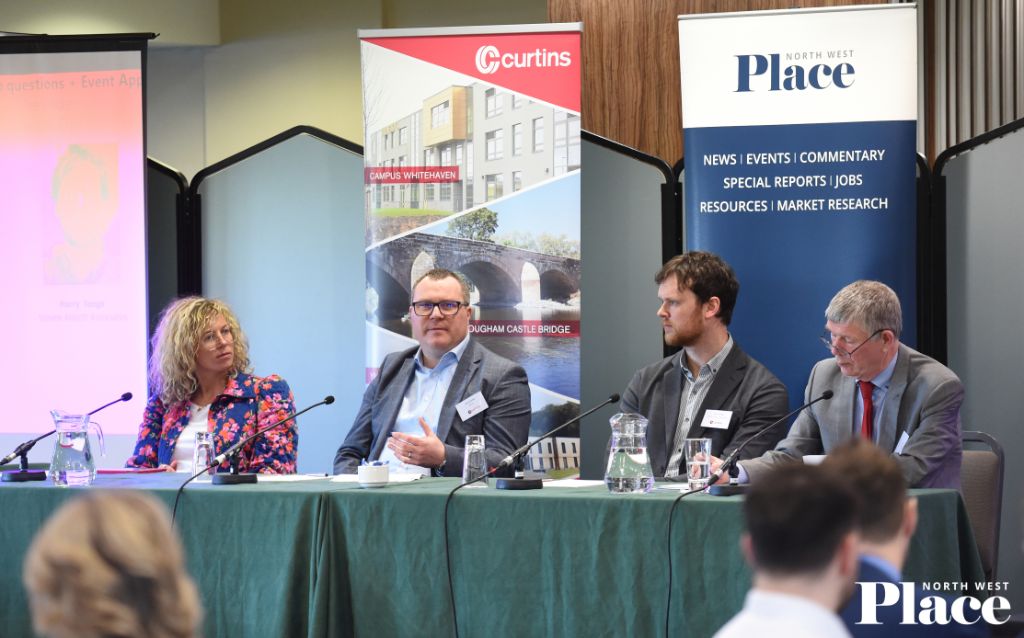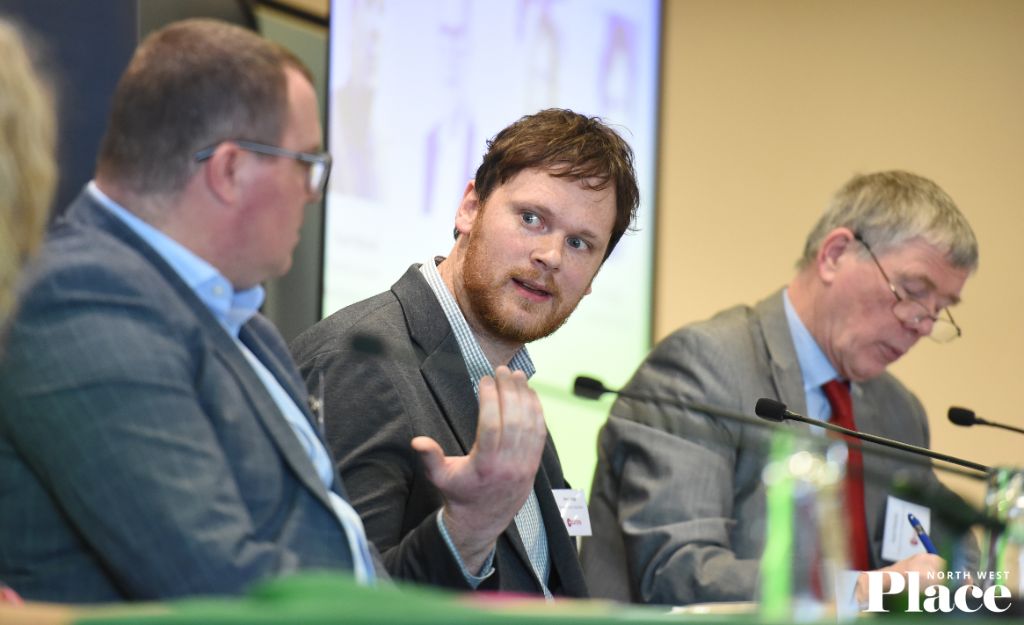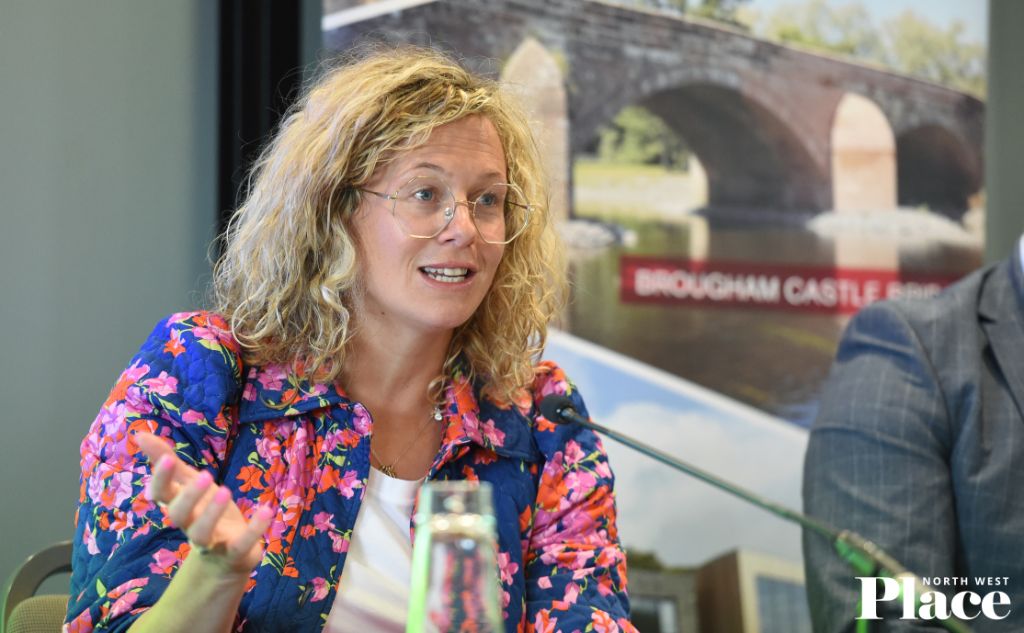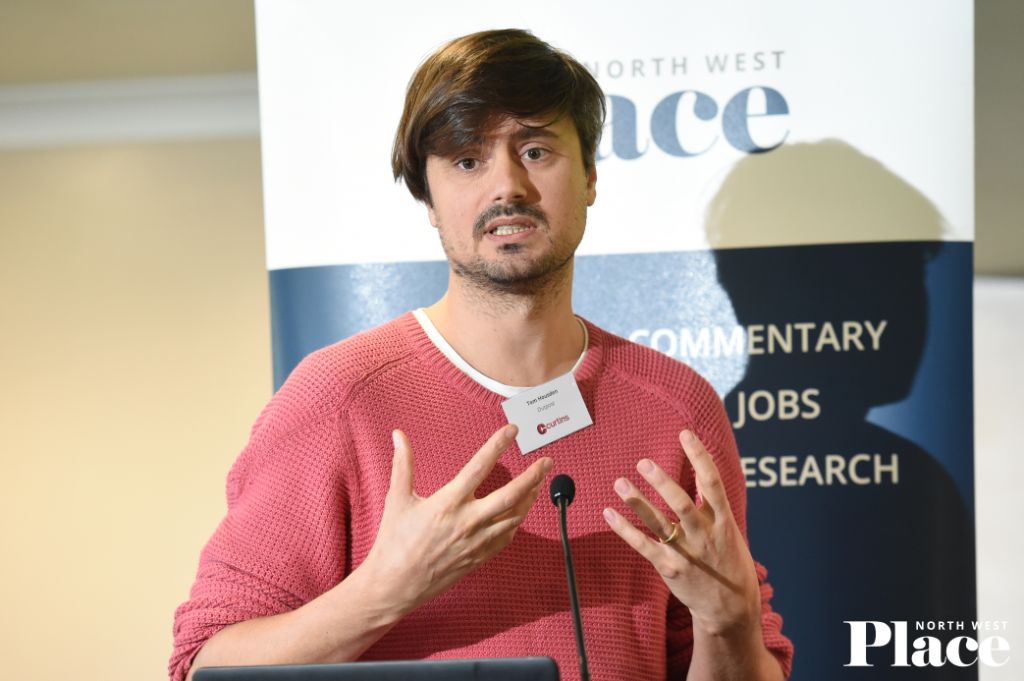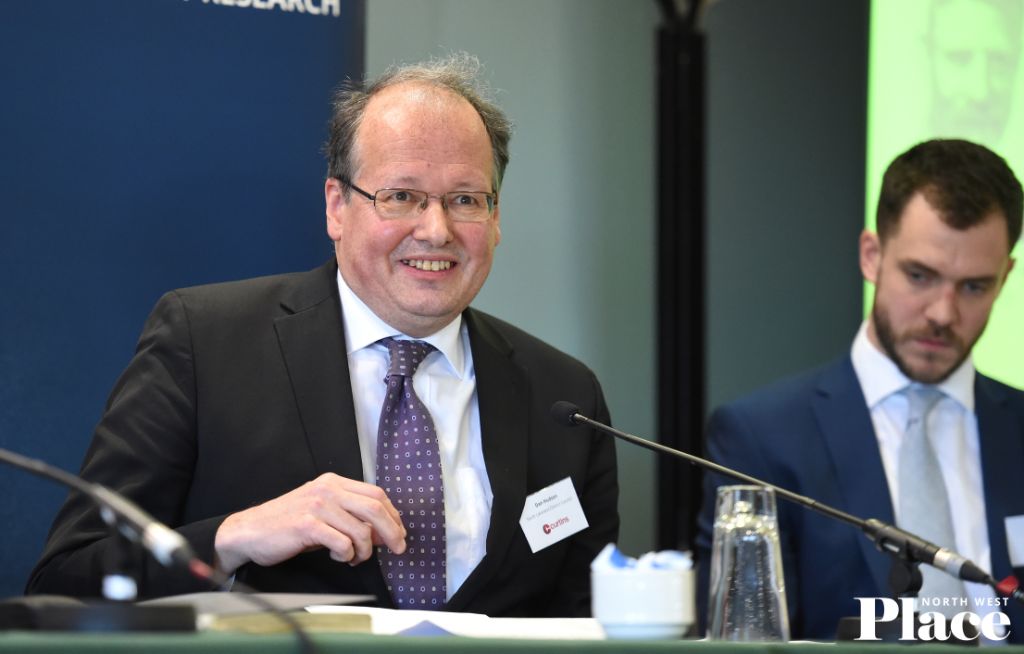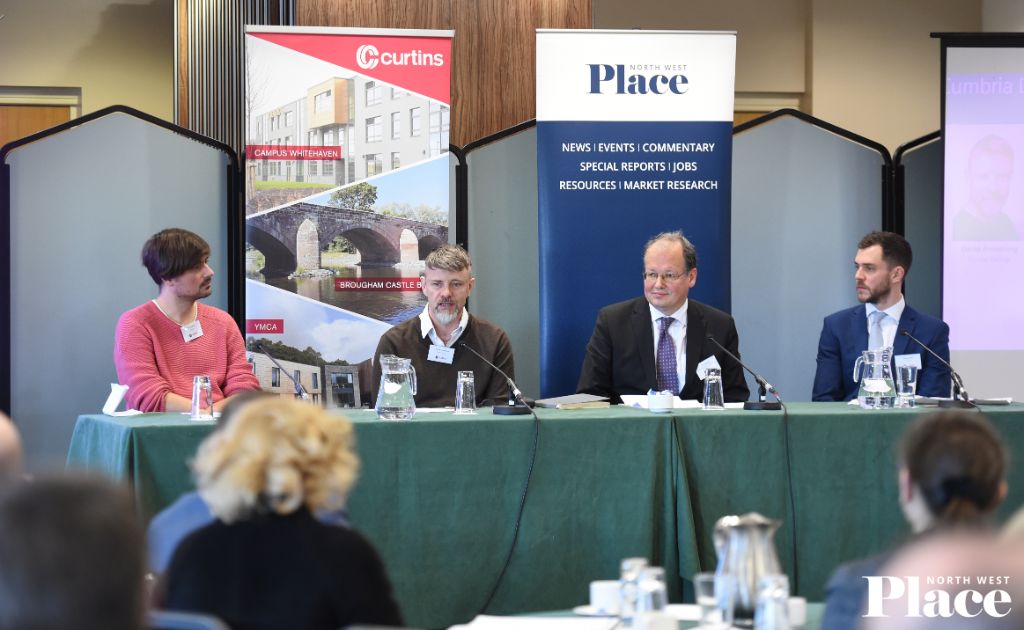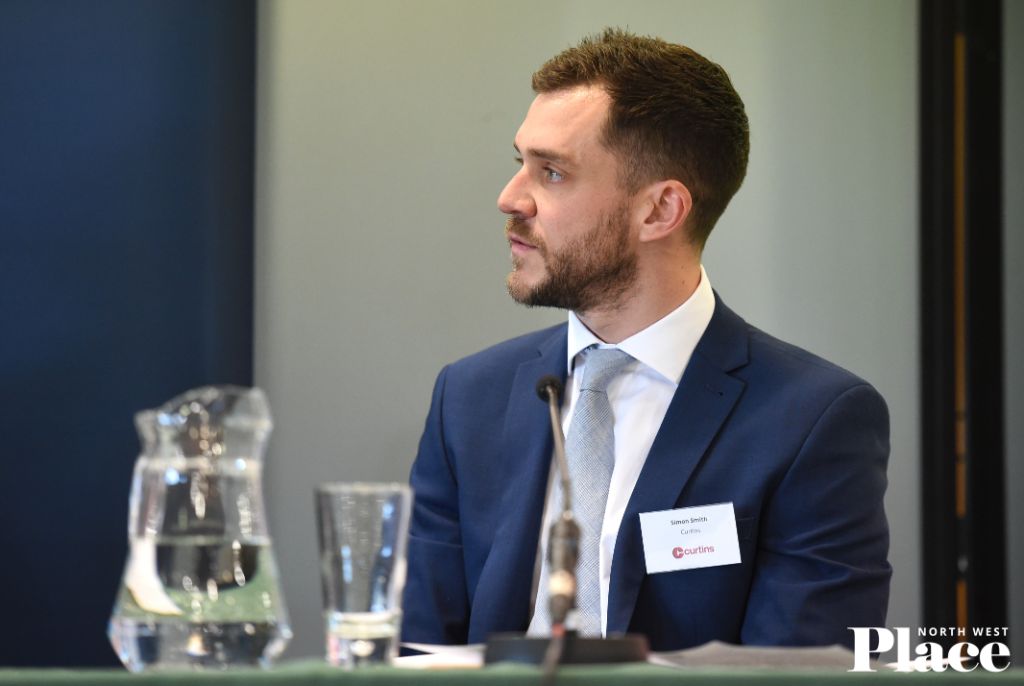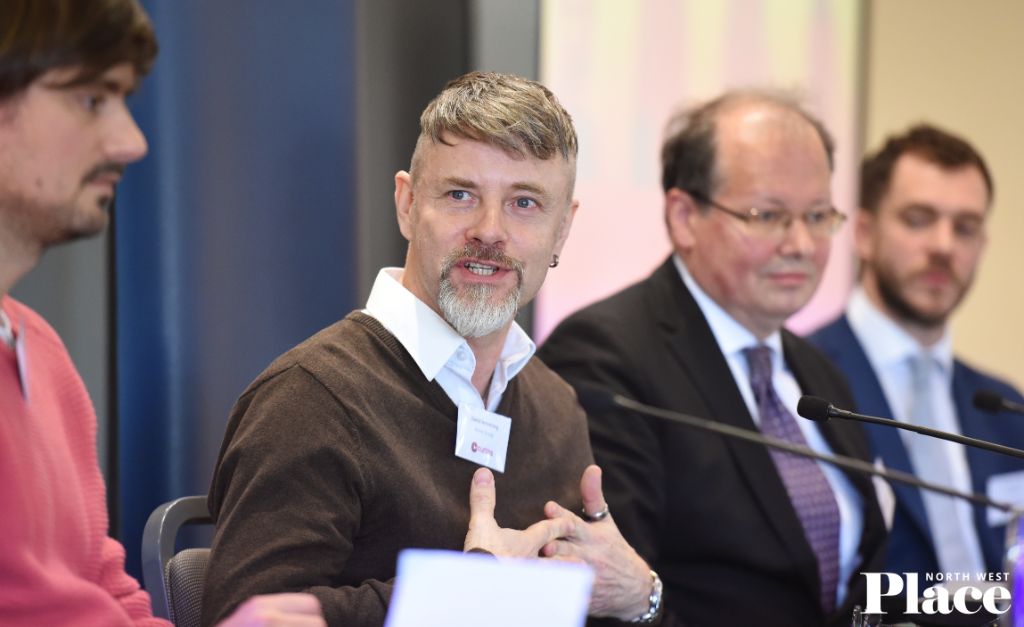Event Summary
Cumbria Development Update | Summary, slides + photos
Devolution of power, the future of housing and the UK’s floods were hot topics at this Place North West event.
The speakers were:
- Michelle Rothwell, founder of Watch this Space
- David Wiggins, principal engineer at Curtins
- Stuart Klosinski, project manager at Furness Economic Development Forum
- Dave Saville, business unit director for Wates
- Harry Tonge, associate and head of the Kendal office for Steven Abbott Associates
- Thomas Housden, director of Outpost
- David Armstrong, senior delivery manager at Home Group
- Dan Hudson, strategy lead specialist at South Lakeland District Council
- and Simon Smith, associate at Curtins.

Around 100 people attended the Cumbria Development Update, sponsored by Curtins and chaired by Sarah Townsend, editor of Place North West.
Creative spaces
Michelle Rothwell, who grew up in the Lake District and is now based in Manchester, opened the event by detailing Watch This Space’s transformation of the Grade II-listed Duke William pub in Staveley into Billy’s Space, a 6,000 sq ft creative business hub.
- She highlighted Watch This Space’s colourful style – such as designing floral tile-covered office blocks and greeting guests at the Billy’s Space launch with a parkour champion holding a handstand pose on top of a chimney.
- Despite initial scepticism from the community, which wanted it to remain as a pub even though it had failed many times, Billy’s seven work spaces were fully trading within three months with record rents, according to Rothwell. When international outdoors brand Fjällräven said it wanted to move in, they repurposed part of a car park, at £22 a foot when rates in the village were just £10 a foot.
- She praised the accessibility of the Lake District National Park Authority for its ability to give advice ahead of the submission of a planning application and said her company would be “delighted to do more in the Lakes”.
Next, David Wiggins gave a presentation focussing on three key areas of heritage engineering: repairing historic bridges, finding creative uses for old buildings, and the rehabilitation of industrial heritage – saying “you need to understand the problem if you are going to fix it”, and “unpick the prior inappropriate repairs”.
- He said Curtins’ mantra is a quote from the architect Dr Bill Harvey: “If the building stands up and your sums say it shouldn’t, you’re either doing your sums wrong, or you’re doing the wrong sums.”
- He emphasised the importance of Cumbria’s bridges, however small, and his first case study was Brougham Castle Bridge, damaged in 2015 by Storm Desmond, which became a “flagship of the infrastructure recovery programme”. “It was a 3D problem that we analysed with old fashioned force principles,” he said.
- Wiggins then highlighted Ulverston Town Hall that was “rotting in plain sight”, saying “the best way to conserve historic buildings is to use them”, before it was transformed into social housing flats.
- Finally, repairing the “thirsty masonry” of the Cumberland Pencil Factory in Keswick, with its rusting steel frame, saw it repurposed as a conference facility. “The vernacular identity was important or we would lose that community’s sense of place.”
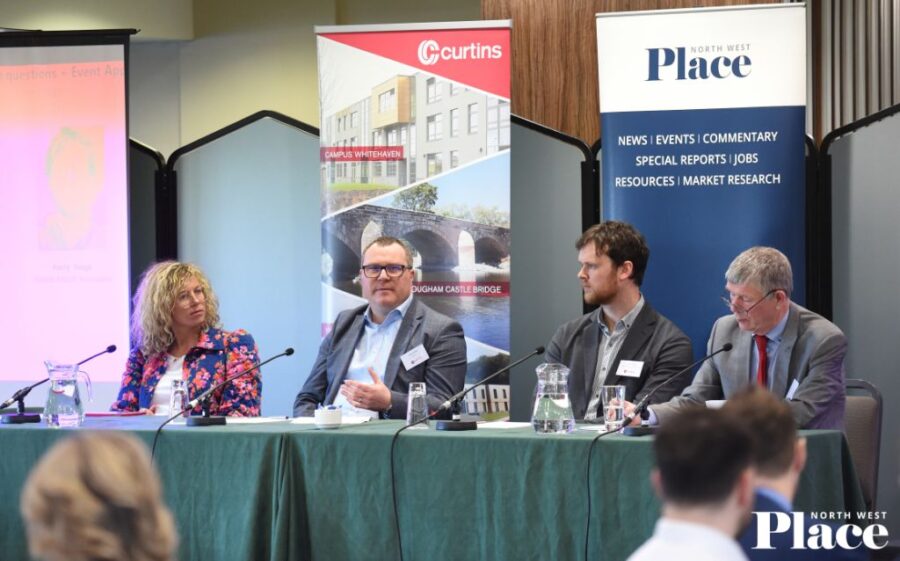
From left to right: Michelle Rothwell, founder Watch This Space; David Saville, business unit director, Wates; Harry Tonge, associate, head of Kendal office, Steven Abbott Associates; and Stuart Klosinski, project manager, Furness Economic Development Forum
Michelle Rothwell, Stuart Klosinski, Dave Saville and Harry Tonge took part in the first panel discussion.
Fuelling economic growth
- When asked about Cumbria’s economic growth, Klosinski said he welcomed a stable political environment and spoke of exciting developments such as in autonomous underwater vehicles and garden villages in Lancaster and Carlisle, as well as calling for additional investment in Cumbria’s ports to prevent traffic flowing to the likes of Liverpool. He called for more capacity in the supply chain, revealing that of 27 companies working on developments, only four were from Furness and nine were Cumbrian.
- Townsend asked Saville if the opportunities for development were fewer in a council-led region. He said the region is seeing improved confidence in decision making and highlighted ongoing projects suffering delays to contracts due to political uncertainty. He also said he could not see the same opportunities in Cumbria – such as blue light projects – as there are in areas with mainly devolved authorities.
- Rothwell said that devolution in Cumbria could give power back to local authorities if they were in charge of their own funds – and that keeping it simple and having strong leadership was key.
- Klosinski said there was a risk of fragmentation and that good leaders were needed to drive this because there are disparate areas across Cumbria.
- In relation to the Lake District’s status as a World Heritage Site, Tonge said it could make planning complex, but was also an attribute that could be used to sell a development.
- Tonge discussed land prices, particularly in Kendal, where the fact it is in a very constrained area is known by landowners, leaving well-priced sites in short supply.
- On the subject of transport, Saville said there was a need to protect World Heritage Status and that prefabricated, modular construction methods could minimise the amount of movement that needs to occur. Klosinki highlighted the need for reliable east-west links, highlighting a lack of electric vehicle charging points and emphasising that housing needs to be close to employment centres.
- In Barrow, Klosinski revealed an £11m Holiday Inn was proving a popular choice with international Lake District visitors. He also said larger industrial premises were lacking and suggested that a development agency-type approach was needed for the future.
- When asked what could impact development in 2020, Rothwell said people who would “rather see a building rot” were given a strong voice and that developers needed to listen and come up with new creative ideas. Saville said there were concerns about free movement of labour. Tongue added that planners at a high level were saying the right things but that needs to filter down to decisions on the ground, while Klosinski said there needs to be a clear message that Cumbria is on a par with the rest of the country.
- One question from the floor asked the panel’s opinions on having a two-tier council system with unitary bodies – something about which the council is reported to be in discussions with Whitehall. Tonge said it could be positive to have a single unitary approach and gave the example of waiting to hear about highways or drainage following a planning application. Saville said the benefit would be increased consistency across the county, but a downside could be a loss of local identity.
- Rothwell expressed a preference for seeing independent businesses involved in developments rather than big names. She cited Penrith New Squares where a “huge high street is sitting there empty”. Klosinski highlighted an innovative way of funding – 40% of Holiday Inn’s £11m project investment came from local wealthy individuals and said it had been a catalyst for regeneration as a big brand can increase public confidence in local consumer standards.
Towards more innovative housing
The next speaker was Thomas Housden, who detailed his firm’s Great Place: Lakes & Dales RIBA competition win, which involved a site in Burneside.
- The challenge was to create a housing scheme of 40 homes aimed at people aged 25-40 that was affordable and environmentally friendly.
- Outpost’s winning proposal “melded ideas from two key [typologies]”, Housden said – longhouses of different sizes and the Chinese hutong, with courtyards and squares arranged in a simple form. Both building types would be cheap to produce as they are made of unitised walls filled with straw, had earth-based floors finished with linseed, and exteriors of lime render.
- Housden described how people could buy a “shell of space” and, over time, build inside, giving flexibility between living and working, with options ranging from co-living spaces, to a pod home office, or a family house with moveable walls; even ground floor living for older people with an apartment above to let to grandchildren or as an Airbnb to generate income.
- He said “little touches can make something sell for a lot more”, such as incorporating seating into thick walls and “playing with form and architecture”. There is the “possibility to create a new vernacular”, he concluded.
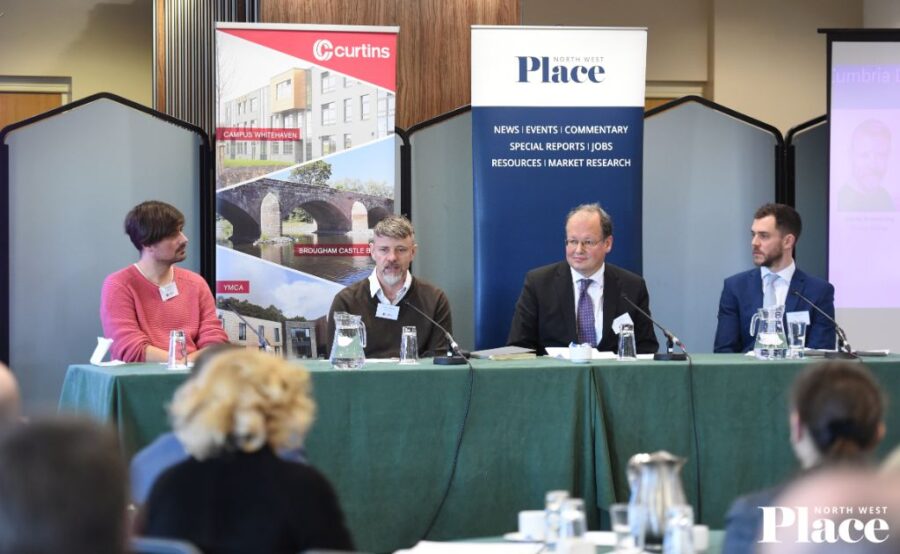
From left to right: Thomas Housden, director, Outpost; David Armstong, senior delivery manager, Home Group; Dan Hudson, strategy lead specialist, South Lakeland District Council; and Simon Smith, associate, Curtins
The second panel featured Housden, David Armstrong, Dan Hudson and Simon Smith and discussed housing demand and delivery challenges across Cumbria.
- Hudson said there were two fundamental challenges with the South Lakeland Local Plan – climate change and demographics. The plan needs to provide housing so that young people stay in the region and wealth creators come to “rebalance the population”.
- Armstrong said Home Group’s “bread and butter” business was social housing and that it is building numerous sales units to support growth in this sector. However, it is often difficult getting contractors to tender outside the key accessible areas up the M6, he said. To facilitate that, Home Group is trying innovative new modular construction on the west coast.
- Smith said flooding and drainage was a growing concern and Cumbria’s geology and topography makes it “harder to achieve attenuation volumes”, while the need to install attenuation ponds mean developers often have to fit fewer houses onto a site. Housden said “if you can find solutions you can create your market”, such as allowing flooding below buildings raised above ground level, but a “big mindset change” is needed to address climate change.
- Armstrong said “we are building for young people but we need to ask what their aspirations are”, adding that “old fogies like me are making the decisions”.
- Regarding innovation, Hudson said “we need to have courage to try different things, to promote the experimental”, and that he was “reluctant to be prescriptive on design” in the forthcoming local plan to 2024.
- Asked about the benefits and challenges of reusing old properties to meet demand for housing in Cumbria, Armstrong gave the example of a former nightclub in Kendal that was converted into affordable flats for rent, but warned that planners need to be flexible if schemes are to go ahead. Housden described a former sports hall that had been “wrapped”, with the cavity pumped full of straw, saying the UK is “massively behind” in terms of innovation.
- Regarding devolution, Armstrong said there were currently major logjams such as when one authority lacks capacity to process applications and other approvals – “The process moves at the pace of the slowest and there are too many of them”, he said.
- Meanwhile, Hudson described the fact that highways, drainage and planning are typically handled by different organisations as “bonkers” and the “biggest single challenge in bringing sites forward”. Smith added that he would love to see more variety in housing types – as that would be “more appealing than [what is on offer from] the mass-build market”.
The presentation slides can be accessed below:
Michelle Rothwell, founder, Watch This Space.
Thomas Housden, director, Outpost.
Click any image to launch gallery
- Michelle Rothwell, founder, Watch This Space
- Place North West editor Sarah Townsend
- Michelle Rothwell, founder, Watch This Space
- David Wiggins, senior engineer, Curtins
- Michelle Rothwell, founder, Watch This Space
- Stuart Klosinski, project manager, Furness Economic Development Forum
- From left to right: Michelle Rothwell, founder Watch This Space; David Saville, business unit director, Wates; Harry Tonge, associate, head of Kendal office, Steven Abbott Associates; and Stuart Klosinski, project manager, Furness Economic Development Forum
- Harry Tonge, associate and head of Kendal Officer, Steven Abbot Associates
- Michelle Rothwell, founder, Watch This Space
- Stuart Klosinski, project manager, Furness Economic Development Forum
- Tom Housden, director, Outpost
- Dan Hudson, strategy lead specialist, South Lakeland District Council
- From left to right: Tom Housden, director, Outpost; David Armstong, senior delivery manager, Home Group; Dan Hudson, strategy lead specialist, South Lakeland District Council; and Simon Smith, associate, Curtins
- Simon Smith, associate, Curtins
- David Armstong, senior delivery manager, Home Group
Our next conference, Place RESI, is due to take place on Thursday 2 April.


